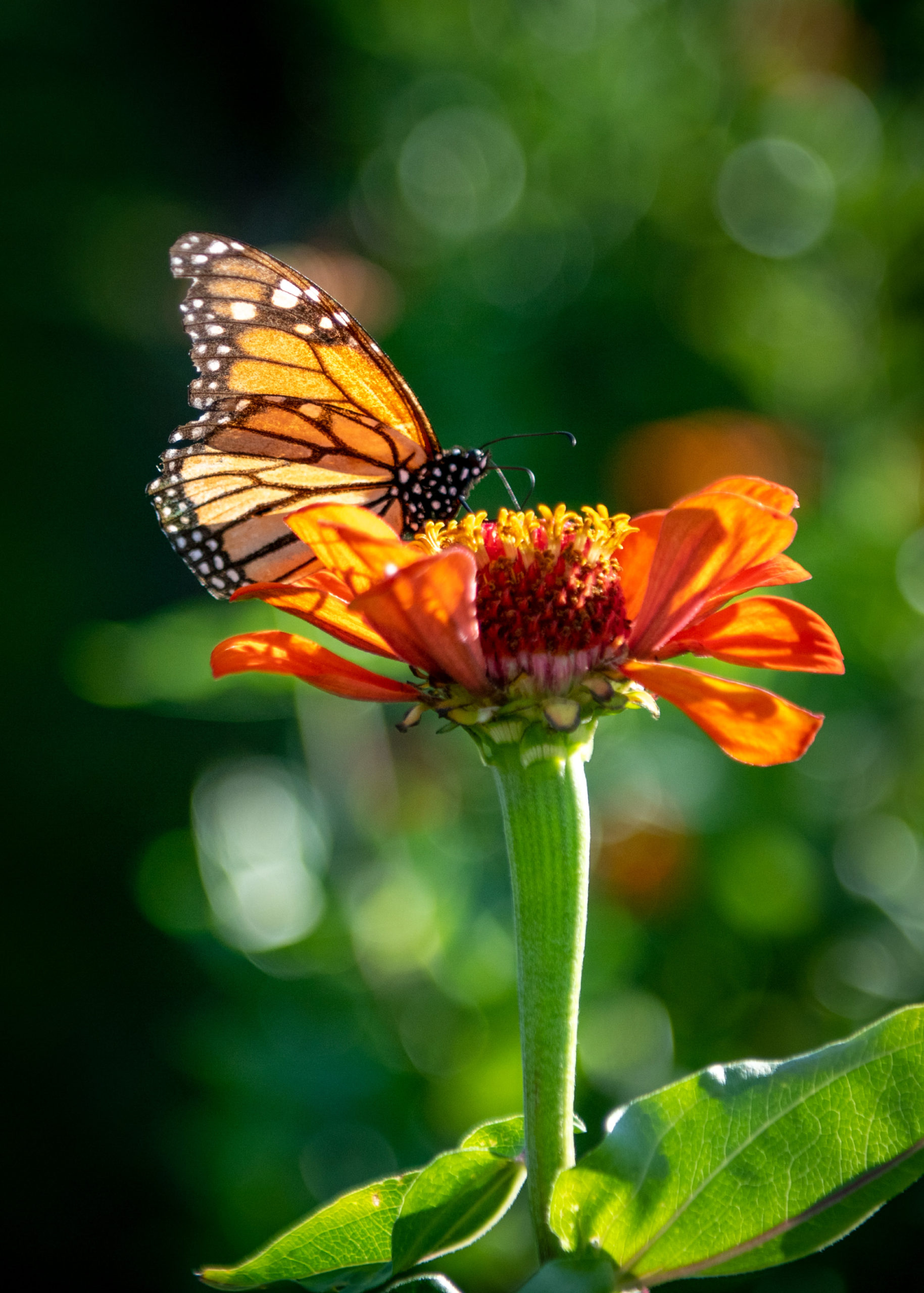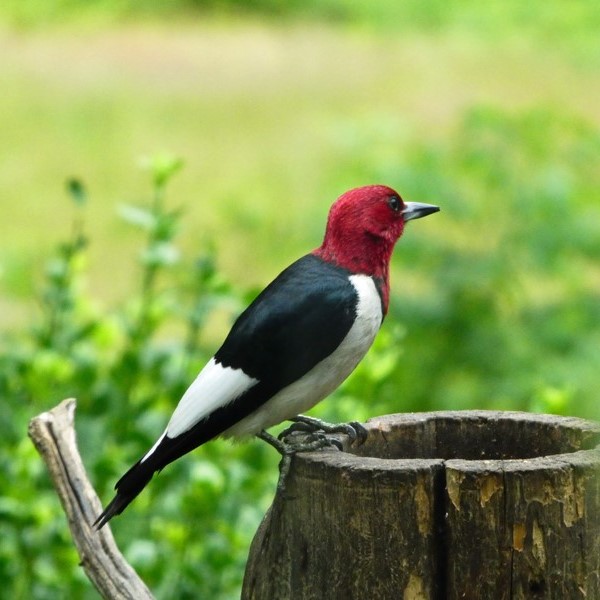Spotted: Red-headed Woodpecker
NCLC Presents: Wildlife Cameras 101
Connecticut’s woods are full of life. Do you know who your animal neighbors are?
Wildlife cameras offer a fascinating glimpse of animal life. Join us as we look back at NCLC’s best wildlife videos of 2021. Summer Hoogenboom, wildlife biologist and NCLC volunteer, will offer context for the animal behavior displayed in these short clips. Summer will also provide guidance for getting a wildlife camera started in your own backyard.
Video: Make Your Yard a Haven for Birds
Enjoy the songs and colors of birds by creating a yard that will attract and support our feathered friends. In this event recording, Becca Rodomsky-Bish, of the Cornell Lab of Ornithology, shares the vital role native plants play in providing food and shelter for birds.
Becca Rodomsky-Bish is a project leader at the Cornell Lab of Ornithology. Her areas of expertise include native habitat, sustainability, and education. One of her projects is the Great Backyard Bird Count.
March e-news: Exploring Spring with NCLC
February News: What We Gain From Time Outside
Recording: 2021 Annual Meeting
NCLC held its Annual Meeting on Saturday, November 20. Missed the meeting? We’ve posted a recording so you can learn how NCLC uses the latest science to prioritize our conservation acquisitions, moving rapidly to protect new lands now, and taking bold, local action to address the challenges of global climate change.
September News – Common Ground, New Video, Family Hikes For You
Watch Our Video: Stories from the Land
June News – Midsummer Party, Second Saturdays, and Hikes
In this month’s newsletter, we feature upcoming events, educational opportunities, and the good work of NCLC’s summer interns who have helped to ensure our public preserves are ready for you to explore. Click here to enjoy.


